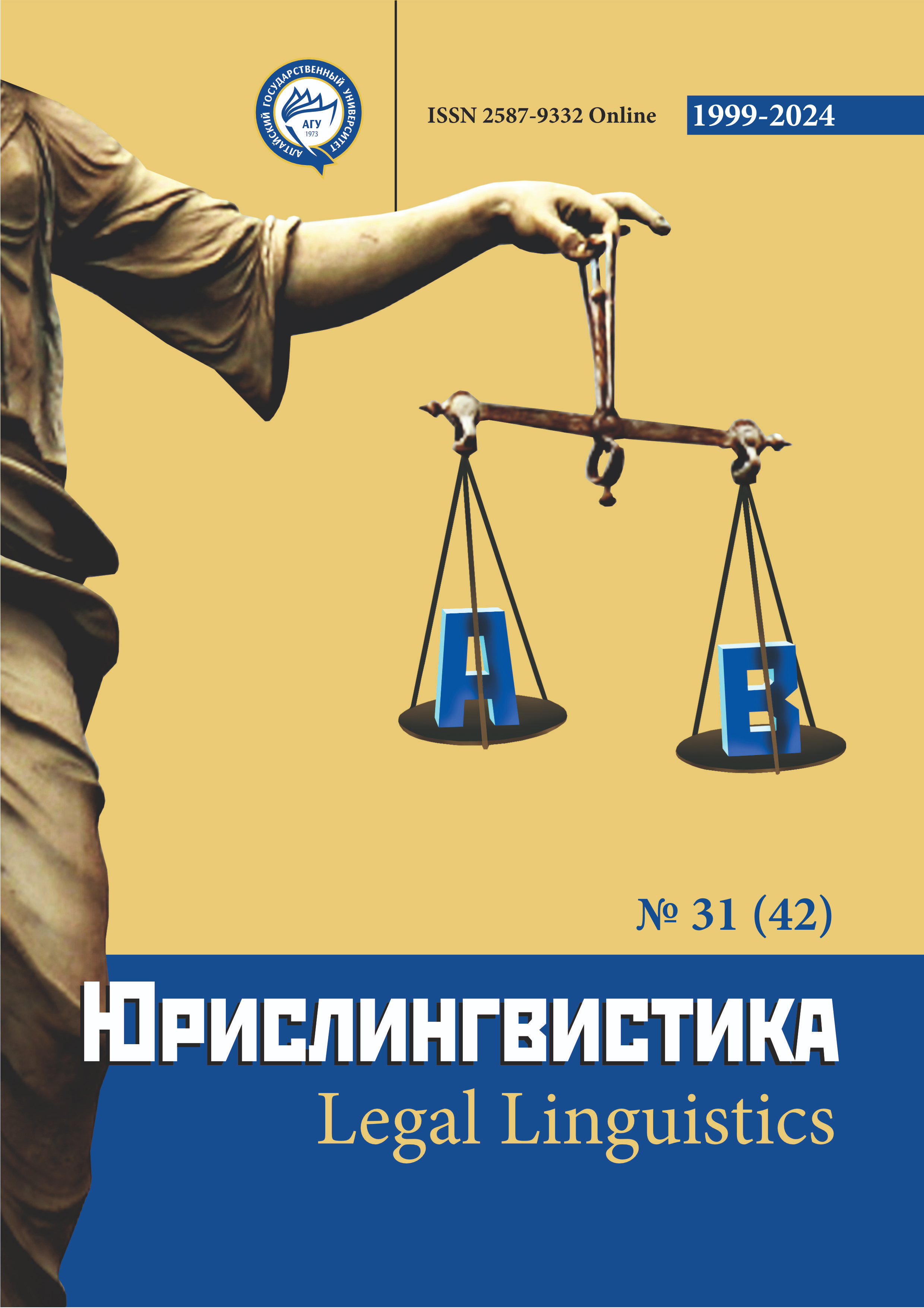Features of the Use of Special Knowledge in Cases of Insulting Members of Precinct Election Commissions
УДК 343.98, ББК 6752
Abstract
The theoretical investigation into these criminal acts is especially relevant in regards to the upcoming presidential elections of the Russian Federation in 2024 when a complicated social and political situation creates opportunities for mass actions to counter the activities of election commissions. Examples of the main criminal acts related to the humiliation of the honor and dignity of members of precinct election commissions of the Russian Federation, as well as other actions that violate the election procedure are given. The article also analyzes the normative legal acts of the electoral legislation of the Russian Federation in terms of regulating the status of members of precinct commissions, voting, as well as the statuses of other participants in the electoral process. The features of the use of special knowledge in the investigation of insults committed on the premises of precinct election commissions, with noted distinction of the wrongful act environment (the use of video surveillance, the possibility of using electronic means for voting) and the nature of the special knowledge used in the commission of individual investigative actions, are revealed.
Downloads
Metrics
References
Адигамова Ю. И. Условия возбуждения уголовных дел в отношении отдельных участников избирательного процесса / Актуальные проблемы росс. права. - 2015. - № 2. - С. 108–114.
Алиев Т. Т., Аничкин И. М. Правовой статус избирательных комиссий в Российской Федерации / Современное право. - 2012. - № 5. - С. 61–65.
Галяшина Е. И. Судебная лингвистическая экспертиза. М., 2022.
Гончаров В. В. Правовое регулирование института общественного контроля: международный и зарубежный опыт / Актуальные проблемы российского права. - 2019. - №10. - С. 155–171.
Гриб В. В. Актуальные проблемы правового развития института общественного контроля в Российской Федерации / Конституционное и муниципальное право. - 2015. - №11. - С. 3–13.
Дегтерев А. А. Избирательный документ как предмет преступления / Труды Института государства и права РАН. - 2022. - Т. 17. - № 1. - С. 222–234.
Игнатенко В. В. Место и роль участковых избирательных комиссий в системе избирательных комиссий в Российской Федерации / Избирательное право. - 2013. - № 2(22). - С. 46–58.
Кустов А. М., Кокорев Р. А. Проблемы применения видеозаписи при расследовании преступлений против личности / Труды Академии управления МВД России. - 2018. - №1 (45). - С. 73-77.
Постановление ЦИК России от 05.12.2012 N 152/1139-6 "Об удостоверении члена участковой избирательной комиссии с правом решающего голоса" (вместе с "Порядком изготовления и выдачи удостоверения члена участковой избирательной комиссии с правом решающего голоса") / СПС КонсультантПлюс.
Постановление ЦИК России от 20.12.2017 N 116/943-7 "О Порядке применения средств видеонаблюдения и трансляции изображения, трансляции изображения в сети Интернет, а также хранения соответствующих видеозаписей на выборах Президента Российской Федерации 18 марта 2018 года" / СПС КонсультантПлюс.
Смирнов С. А., Заболева М. В. Региональное законодательство и акты муниципальных органов власти в системе правового регулирования муниципальных выборов / Избирательное законодательство и практика. - 2016. - № 3. - С. 22–25.
Федеральный закон "Об основных гарантиях избирательных прав и права на участие в референдуме граждан Российской Федерации" от 12.06.2002 N 67-ФЗ / СПС КонсультантПлюс.
Copyright (c) 2024 Дмитрий Спирев

This work is licensed under a Creative Commons Attribution 4.0 International License.
The authors, which are published in this journal, agree to the following conditions:
1. Authors retain the copyright to the work and transfer to the journal the right of the first publication along with the work, at the same time licensing it under the terms of the Creative Commons Attribution License, which allows others to distribute this work with the obligatory indication of the authorship of this work and a link to the original publication in this journal .
2. The authors retain the right to enter into separate, additional contractual agreements for the non-exclusive distribution of the version of the work published by this journal (for example, to place it in the university depository or to publish it in a book), with reference to the original publication in this journal.
3. Authors are allowed to post their work on the Internet (for example, in a university repository or on their personal website) before and during the review process of this journal, as this may lead to a productive discussion, as well as more links to this published work (See The Effect of Open Access).











